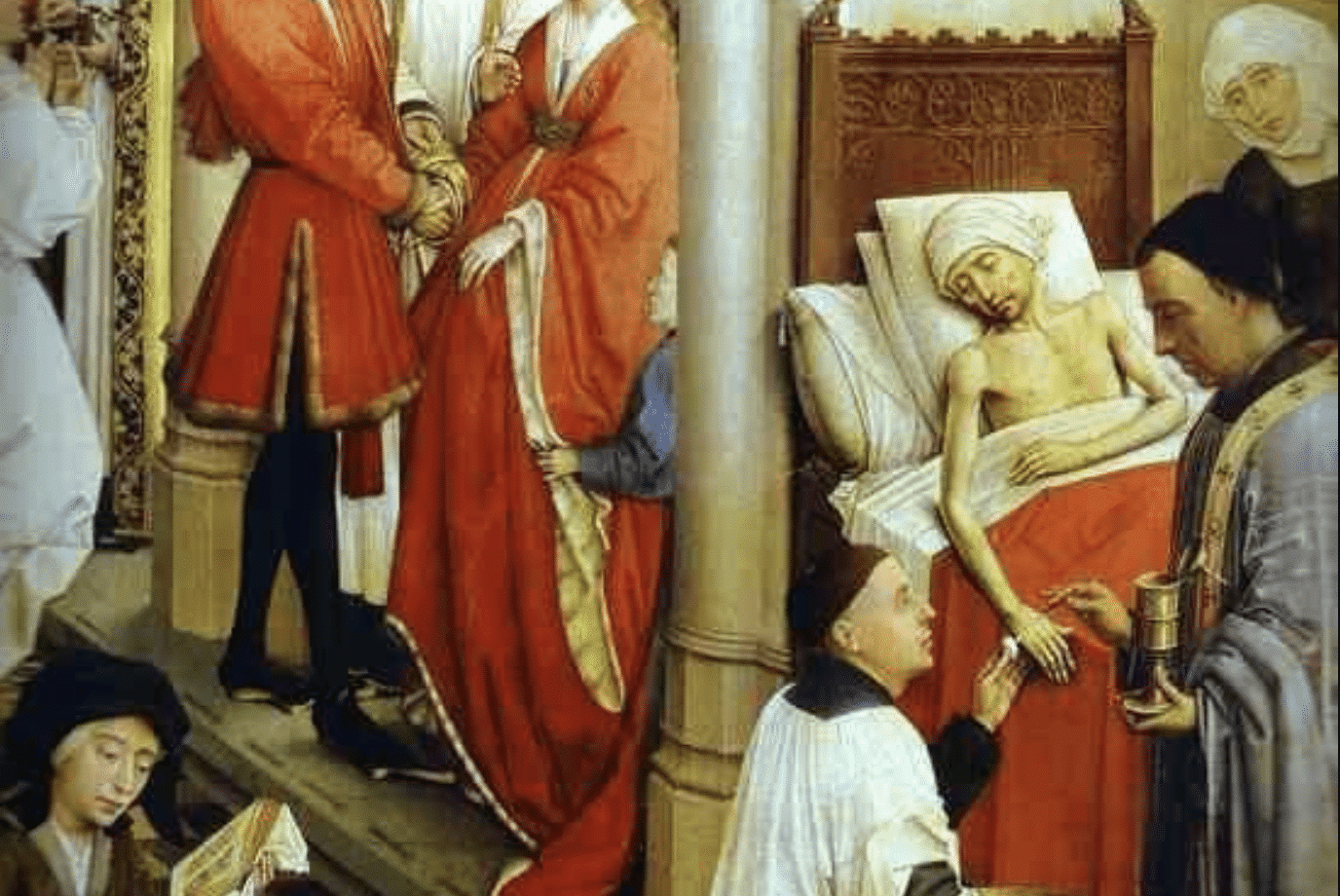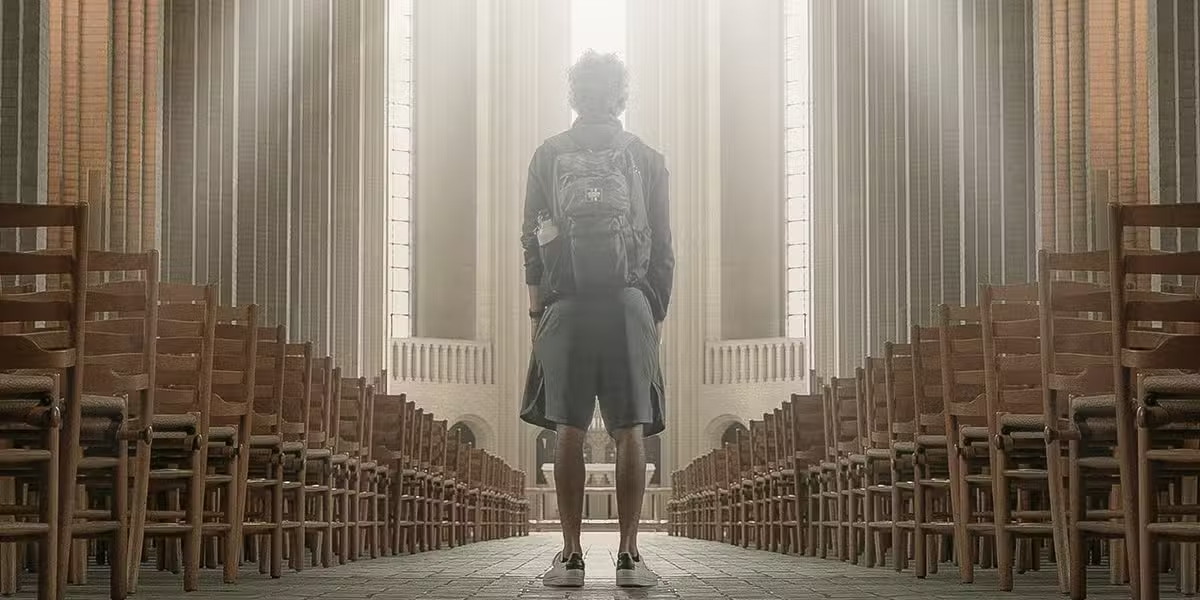Q. The catechumens in my RCIA group asked me these questions: Can permanent deacons administer the Sacrament of the Sick? Can a non-baptized person receive the Sacrament of the Sick? Can a baptized person who is not a Catholic receive the Sacrament of the Sick? If not, why not?
A. One commentary, The Canon Law Letter and Spirit: A Practical Guide to the Code of Canon Law (prepared by the Canon Law Society of Great Britain and Ireland in association with the Canadian Canon Law Society), notes that the doctrinal question, whether someone not validly ordained a priest could validly confer the Sacrament of the Anointing of the Sick, has not been settled.
Canon #1003 states, “Every priest, but only a priest, can validly administer the Anointing of the Sick.”
Those who argue that priesthood must be necessary cite the text of James 5:14, “Is anyone among you sick? He should summon the presbyters [italics mine] of the Church and they should pray over him and anoint [him] with oil in the name of the Lord.”
So, at least in the present discipline of the Church, deacons cannot confer the Sacrament of the Anointing of the Sick.
People, including priests, can certainly pray for someone who is sick and not baptized. A person who has not been baptized, however, cannot receive the Sacrament of the Anointing of the Sick or any other sacrament. It is Baptism that initiates a person into the life of grace and the liturgical life of the Church. It is through Baptism that a person acquires the capacity to grow in grace.
Canon #842, therefore, states the constant teaching of the Church, “A person who has not received Baptism cannot validly be admitted to the other sacraments.”
In order for a non-baptized person to receive the last rites (including Anointing of the Sick), the following conditions must be met: be seriously ill and in danger of death, be convinced of the teaching of the Church, wish to be incorporated into the Church and desire the last rites. That person would first be baptized and confirmed, then anointed and lastly given the Eucharist as viaticum.
Ordinarily only Catholics may lawfully receive the sacraments from Catholic ministers. Canon #844 states, “Catholic ministers may lawfully administer the sacraments only to Catholic members of Christ’s faithful, who equally may lawfully receive them only from Catholic members, except as provided in numbers 2, 3 and 4 of this Canon and in Canon #861, 2.”
These numbers in Canon #844 regulate the exceptional circumstances in which the Sacraments of Reconciliation, Eucharist and Anointing of the Sick may be received by Catholics from non-Catholic ministers in whose Churches these sacraments are valid. They also regulate Catholic ministers administering these sacraments in exceptional circumstances to members of the Eastern Churches or other Churches in the same position so far as the sacraments are concerned.
Canon #844, 4, specifically legislates, “If there is danger of death or if, in the judgment of the diocesan bishop or of the bishops’ conference, there is some other grave and pressing need, Catholic ministers may lawfully administer these same sacraments to other Christians not in full communion with the Catholic Church who cannot approach a minister of their own community and who spontaneously ask for them, provided that they demonstrate the Catholic faith in respect of these sacraments and are properly disposed.”









1 thought on “Anointing the Sick and Baptism”
This is an interesting issue; the language within Canon 844 suggests that only baptized Catholics can receive the sacraments, but section .4 creates an exception for a properly baptized non-Catholic Christian may receive the sacrament of the sick when faced with imminent death or great danger, but this individual must also meet the other requirements of Sec. 4, e.g., their own denomination’s minister is unavailable. These requirements suggest that the non-Catholic by virtue of acceptance and acknowledgement become a Catholic by desire or affirmation prior to receiving the sacrament. Is that accurate? Also what does the term “properly disposed” mean, as it contains no additional interpretational guidance.
Having said that, Canon 844.5 expressly requires the local bishop to acquire prior approval from the non-Catholic Christian churches before the exception of 844.4 will become operative. How does one know whether that has happened, & if so remains an active approval, etc.?
I can see how 844.4 & .5 can operate in a military combat situation where battlefield chaplains may not be of your faith. But if you are engaged in a ministry at say, assisted living centers for the elderly, and the person who is facing death is not Catholic but belongs to some other Christian denomination, who has the responsibility to recite the requirements of 844.4 to the individual before a priest may be summoned?
Finally, the scope of non-Catholic Christians would necessarily exclude Jehovah’s Witnesses, Mormons, Unitarians, Christian Scientists, 7th Day Adventists & the like. What should a Catholic missionary tell those folks who might request the last rites of the sacrament of the sick?
Thanks for your respone.